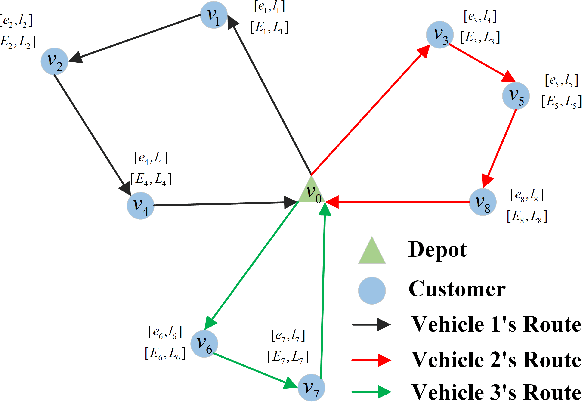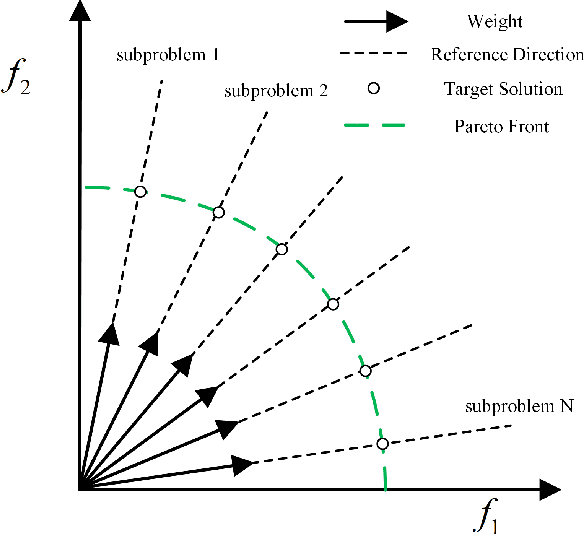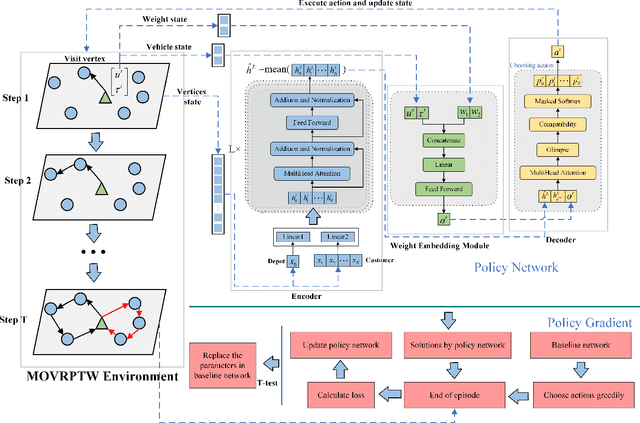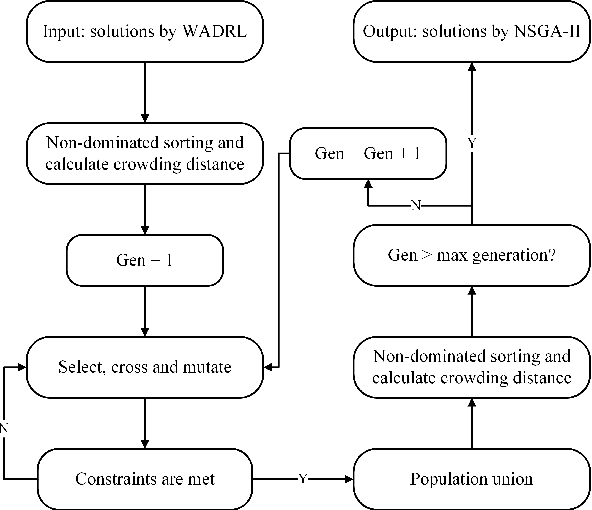Rixin Wu
Multiobjective Vehicle Routing Optimization with Time Windows: A Hybrid Approach Using Deep Reinforcement Learning and NSGA-II
Jul 18, 2024



Abstract:This paper proposes a weight-aware deep reinforcement learning (WADRL) approach designed to address the multiobjective vehicle routing problem with time windows (MOVRPTW), aiming to use a single deep reinforcement learning (DRL) model to solve the entire multiobjective optimization problem. The Non-dominated sorting genetic algorithm-II (NSGA-II) method is then employed to optimize the outcomes produced by the WADRL, thereby mitigating the limitations of both approaches. Firstly, we design an MOVRPTW model to balance the minimization of travel cost and the maximization of customer satisfaction. Subsequently, we present a novel DRL framework that incorporates a transformer-based policy network. This network is composed of an encoder module, a weight embedding module where the weights of the objective functions are incorporated, and a decoder module. NSGA-II is then utilized to optimize the solutions generated by WADRL. Finally, extensive experimental results demonstrate that our method outperforms the existing and traditional methods. Due to the numerous constraints in VRPTW, generating initial solutions of the NSGA-II algorithm can be time-consuming. However, using solutions generated by the WADRL as initial solutions for NSGA-II significantly reduces the time required for generating initial solutions. Meanwhile, the NSGA-II algorithm can enhance the quality of solutions generated by WADRL, resulting in solutions with better scalability. Notably, the weight-aware strategy significantly reduces the training time of DRL while achieving better results, enabling a single DRL model to solve the entire multiobjective optimization problem.
Multiobjective Hydropower Reservoir Operation Optimization with Transformer-Based Deep Reinforcement Learning
Jul 11, 2023Abstract:Due to shortage of water resources and increasing water demands, the joint operation of multireservoir systems for balancing power generation, ecological protection, and the residential water supply has become a critical issue in hydropower management. However, the numerous constraints and nonlinearity of multiple reservoirs make solving this problem time-consuming. To address this challenge, a deep reinforcement learning approach that incorporates a transformer framework is proposed. The multihead attention mechanism of the encoder effectively extracts information from reservoirs and residential areas, and the multireservoir attention network of the decoder generates suitable operational decisions. The proposed method is applied to Lake Mead and Lake Powell in the Colorado River Basin. The experimental results demonstrate that the transformer-based deep reinforcement learning approach can produce appropriate operational outcomes. Compared to a state-of-the-art method, the operation strategies produced by the proposed approach generate 10.11% more electricity, reduce the amended annual proportional flow deviation by 39.69%, and increase water supply revenue by 4.10%. Consequently, the proposed approach offers an effective method for the multiobjective operation of multihydropower reservoir systems.
 Add to Chrome
Add to Chrome Add to Firefox
Add to Firefox Add to Edge
Add to Edge